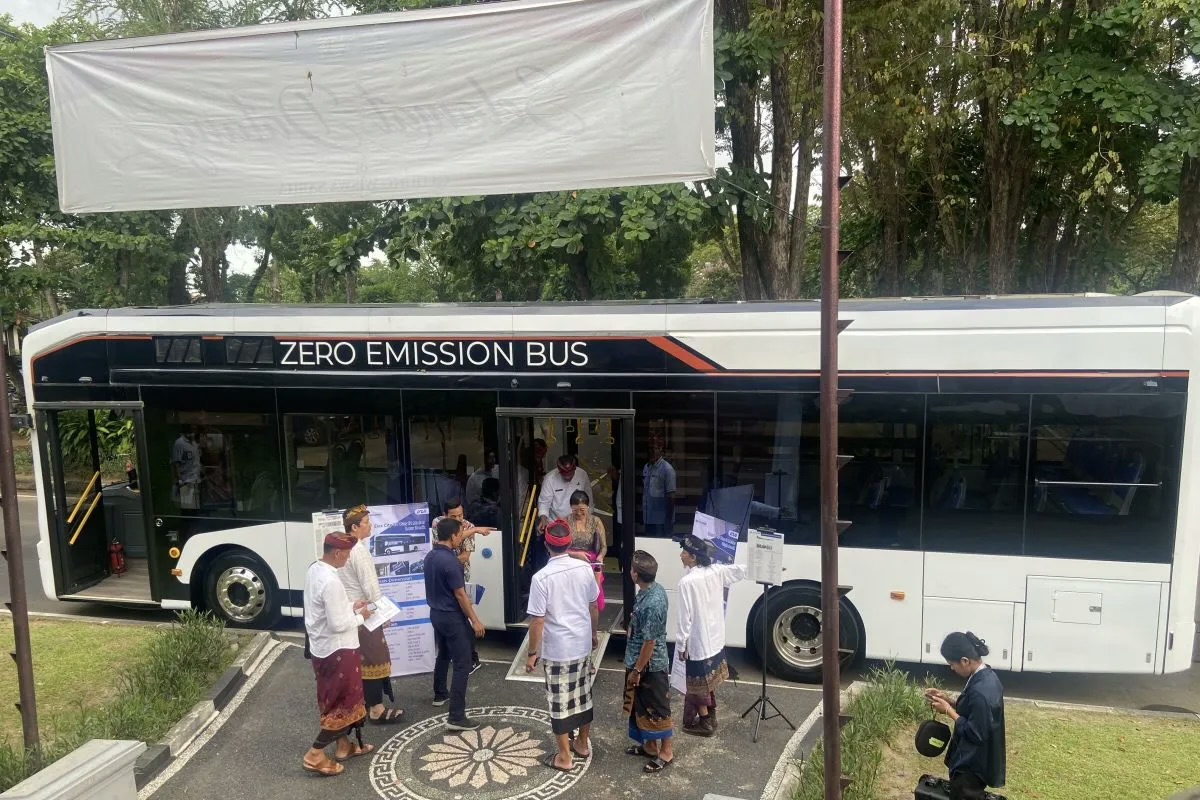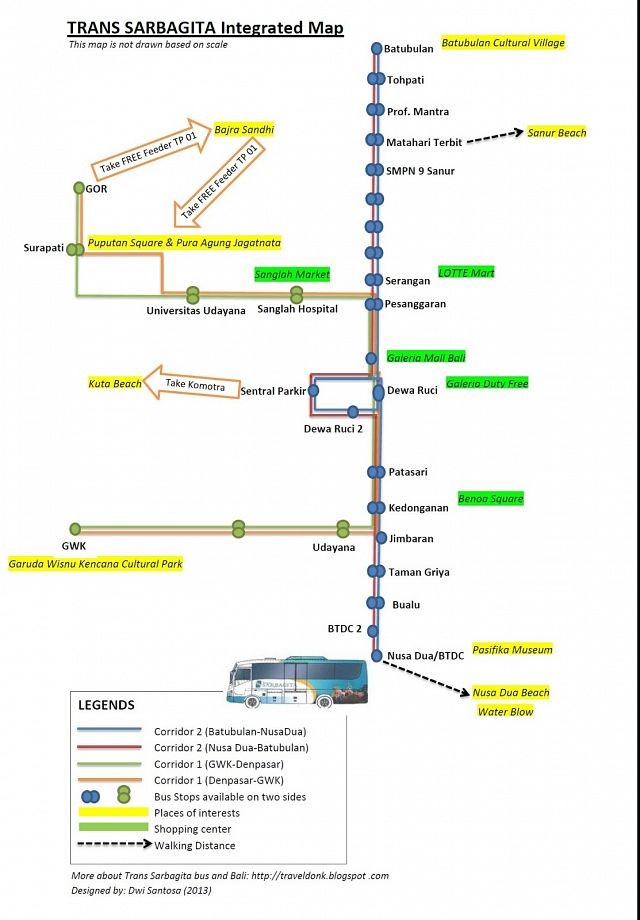
The South Korean Ministry of Environment has funded the Bali E-mobility project — “Pilot Electric Vehicle System and Development of an Investment Roadmap for Green Transportation in Bali.”
South Korea’s Deputy Minister of Environment, Lee Byung-Hwa, arrived in Bali to explore the potential of using electric buses. He even brought along one 12-meter e-bus as a gift. The rest of the fleet, consisting of 10 buses, will arrive later and be pre-adapted for Bali’s road conditions.
“We requested that the buses be 8 meters long to suit Bali’s infrastructure. Manufacturing is expected to take 7–8 months, so they may be ready by early 2026,” said Bali Governor Wayan Koster.
He added that South Korea is providing not only the buses but also charging equipment. Altogether, the gift is worth around IDR 75 billion. The buses will be painted red, white, and black for easy recognition.
According to Koster, residents will have access to quality public transportation at affordable prices. Charging a 35-passenger electric bus will not be a major cost for the government.
As an example, he compared his official electric car to a gasoline vehicle: a round-trip from Denpasar to Buleleng would cost IDR 600,000 using gas, but only IDR 131,000 with an electric vehicle.
The E-mobility project aims to support Indonesia in attracting investment and accelerating the shift toward sustainable, eco-friendly transportation. It introduces electric buses and contributes to the country’s emission reduction targets.
Currently, a feasibility study is being conducted to define the routes for the buses, the number and types of vehicles needed, and the locations of charging stations. Bus stops will be tailored to the needs of locals and tourists, as Bali is Indonesia’s top tourist destination.
Governor Koster stated that transportation emissions in Bali already account for 43% of total greenhouse gas emissions. The provincial government has passed several regulations to attract electric vehicle investments and raise public awareness.
In particular, two gubernatorial regulations were issued:
- No. 45 of 2019 on the use of clean energy
- No. 48 of 2019 on battery electric vehicle usage
These regulations form the basis of Bali’s action plan to accelerate EV adoption and improve public transport infrastructure.
The project will also explore long-term funding opportunities to support the mass electrification of transportation in other regions of Indonesia, with Bali serving as the pilot model for best practices.


You can add one right now!